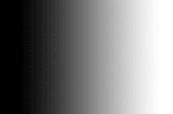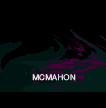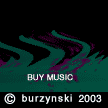

REVIEWED: The New York Press
Eyeball of Hell
In a musical sense, the mid-70s were a horrible dead zone. Although there were many pockets of resistance, hardly anyone knew about them at the time, such was the corporate stronghold of the recording industry and the complete fascism of commercial radio. Alas, such has been the case ever since. But whereas now "alternative" represents an accepted (albeit marginalized) faction–which just means it’s another way of belonging to something–back then, anyone who dissented from the norm did so because they were actually inclined in that direction. The Electric Eels fit the caste of this small minority, and their arrival in the midst of a terrible malaise was an affirmation of all the things "punk" would eventually become, a couple of years before there was any tangible evidence that such a consensus would ever occur.
The Eels are from Cleveland, lodged at the gateway of the Midwest in the middle of the decade, and had the benefit of coming from one of the few cities in America that had a genuine punk uprising long before the fact, a preoccupation the Eels can at least take some credit for. After all, according to the liner notes penned by Eels guitarist John Morton, they shared rehearsal space with two of the prototype Cleveland punk bands: the Dead Boys (at that time called Frankenstein) and Rocket from the Tombs (the proto-Ubu unit lodging Peter Laughner). But while the Dead Boys were transferring the energies of the Stooges and New York Dolls into an even more accelerated brand, and Rocket were working on a more static, subterranean Velvets street-pulse, the Electric Eels were less thought-out, more a product of pure spontaneous combustion. The Eels came about because of the great mid-70s need for levity and irreverence in light of the poncified airs of the snooty Euro-rockers of the time, as well as the sanctimonious mellowness of the hippies. In this sense, they were spiritually linked to other transitional bands like the Dictators, Gizmos, Bizarros and Half Japanese–not quite punk-or-nothing, because their musical palettes were still sprinkled with the rock ’n’ roll of the previous two decades, but their approach to these artifacts was one of sheer mockery. Take the Eels’ hilarious sendup of "Dead Man’s Curve," unreleased until now, in which singer Dave McManus replicates Jan & Dean’s falsetto with the kind of unself-conscious abandon that would simply never happen today.
Because what people forget about "punk rock" is, whereas punk now is a blatant attempt to be "cool" and fit into something, when punk first came about it was just the opposite–indeed, it was a device to be uncool. Take a look at the pictures inside the sleeve of this LP–the Eels were not pretty boys trying to be rock stars. They were fat, unkempt and, by all accounts, thoroughly cantankerous–their entire modus operandi was built on two emotions that were very common at the time: boredom and contempt.
That’s exactly what they expressed, and few have ever done it as convincingly. In the Eels’ work one can hear everything from the clattering rhythms and animalistic brayings of Beefheart to the dada-absurdity of the Hampton Grease Band to the choppy, rudimentary riff-pound of the Stooges and Velvet Underground. But at the same time, in songs like "Agitated," "Cyclotron," "You’re Full of Shit" and "Tidal Wave," one can hear the same kind of explosive angst later plied by hardcore bands like Black Flag and the Bad Brains. In fact, McManus’ completely snotty delivery can in some weird way be seen as a psychic prototype for Keith Morris’ similar sound in the first incarnation of Black Flag (yes, he’s that good).
Most of the tracks here were recorded at various times in 1975, and few of them have seen the light of day until now. "Agitated" and "Cyclotron" were actually issued as a single by Rough Trade in 1978, and for the few who heard these tracks at the time they must have been as much a revelation as the Ramones–hostile slices of aggression that signaled the end of an era and the beginning of a new one. The Electric Eels stood at the crux of history, and the fact that they’re still standing is one of several reasons to go out and grab this piece of history and begin to understand how badly everything in the ensuing 25 years has gone wrong.
Joe S. Harrington January 2002 Volume 15 Issue 1
REVIEWED: Mojo
Eyeball of Hell
Career-spanning retrospective for Cleveland über-punks.
The Electric Eels came out of the same blasted milleu that spawned Rockets From The Tombs, The Styrenes and eventually Pere Ubu, and were the most primative of the lot, playing a sociopathic garage-punk mutant that married two chord frat stomping and atonal free jazz with a real 'fuck-you' attitude. The Eyeball of Hell offers a gloriously lo-fi overview of their fraught career, taking in singles, studio recordings and unreleased loft rehearsals from 1975. The Eels' group dynamic was primarily fuelled by inter-band aggression and the music reflects the players' fractured relationship as it teeters on the edge of falling apart. Vocalist Dave E's lyrics are all teenage taunts and neurosis as he sneers his way through high-energy takes on early classics like Cyclotron and Agitated. Pale pubescence's poetry was never so beautifully rendered.
Dave Keenan April 2002
REVIEWED: Magnet
Eyeball of Hell
Lost in Cleveland found sounds from Cleveland's top musical hate-makers
The most outré and vituperative of the Cleveland bands, the Electric Eels sometimes created songs that could be mistaken for inter-band shouting matches: "You're full of shit and you're ugly of face." But the Eels — especially guitarist Brian McMahon — could also write memorable melodies, and the visceral, no-bass sound allowed the two metallic-sheen guitars to grab sneering Dave McManus in a headlock. The Eyeball of Hell includes both sides of a single released on England's Rough Trade label in 1978 (after the Eel's breakup but during the twilight of British punk) plus the black leather existentialism of "Jaguar Ride" and the trouble- sounding riffing of "Anxiety." "Dead Man's Curve" won't soon recover from the Eels' mauling cover. Many of the tracks on Eyeball were recorded in the hopes that Cleveland commercial rock station WMMS would play them. "They didn't even think about it," says guitarist John Morton. It was like, 'No, No!"
Paul Clements April/May 2003
REVIEWED: Q Special Edition
Eyeball of Hell
Unlike Rockets From The Tombs / Pere Ubu / Dead Boys axis, The Electric Eels never made it out of rainy industrial Cleveland, but their music is no less thrilling. The Eel's boasted a set-closer entitled God Says Fuck You - which is sadly not collected on this career-spanning rag bag of singles, rehearsal tapes and demos, but the deeply sociopathic likes of You're Full of Shit and gloriously primitive debut single Agitated manage the neat trick of alloying elements of free-jazz and frat-punk skronking.
Pat Long 2002
REVIEWED :Mojo
David Keenan picks the best garage trash.
Eyeball of Hell
Even more so than the Stooges, The Electric Eels mapped the screwed-up adolescent psyche of the early '70's. Coming out of Cleveland, with close ties to groups like The Styrenes and Mirrors, The Electric Eels were fronted by one Dave E whose audience baiting-routines regularly resulted in a toe up the ass. There song titles were just as confrontational — You're Full of Shit, As If I Cared — and there music was totally degenerated from garage-rock that routinely collapsed in gloriously inept free-for-alls. The Eyeball of Hell is a retrospective that has everything you need.
July 2002
REVIEWED: Maximum Rock& Roll
Eyeball of Hell
.....now this is more like it.... a real quality job here.... two slabs of nice firn vinyl tucked into a smooth gate-fold jacket chock full of over the top info.... my pistol is packed for this ride.... noisy arty tanglled redundant passages..... over and over again on the headphones.... loud.... If you're an EELS fan this two record set will give you all the pleasures of a big hard cock up your ass... so sit on it, baby.... every reviewer here should put this on their top-ten this month..... show the world you got good taste...
by Shane White - unedited
Maximum Rock & Roll Top Ten Picks #224 January 2002
Jeff Herman * Carolyn Keddy * Ryan Wells * Dulcinea Loudmouth
REVIEWED: Wire Issue 214
Eyeball of Hell
Mirrors "Hands in my Pockets" Overground 2001) CD
Previous valiant attempts to get to grips with the slippery recorded history of 70's Cleveland group The Electric eels have resulted in a series of collections which, although they got close to the truth, never managed to tell their whole grisly tale. The Eyeball of Hell, however, is the definitive edition, complete with bonus tracks, extensive sleeve notes from co-frontman John Morton and an excerpt from guitarist/vocalist Brian McMahon's memoir Jaguar Ride, named after the title of their most celebrated song. "Jaguar Ride" itself sounds phenomenal in all its raw-red glory, with its New York Dolls-like energised guitar grind, over which Morton screams his impassioned vocal about a car, a girl and an act of mindless violence. The music and songs of The Electric Eels perfectly encapsulated the 'Clepunk' sound. Unlike their contemporaries such as Rockets From The Tombs (who later transformed into Pere Ubu) and the Dead Boys, the Eels were a law unto themselves and the wild, flailing, electrically spiked minimalist rock 'n' roll they specialized in has lost none of its power. The previously unreleased "Zoot Zoot" — where they unexpectedly burst into free jazz — and the totally improvised "Jazz Is (Part 2)" show that they were eager to experiment, while the closing "Natural Situation" looks death straight in the skull to produce a stinging song that even outshines "Jaguar Ride".
Stemming from the same period and place, Mirrors were more of a mystery. The group released one highly sought after single for David Thomas's Hearthen label ("Shirley" backed with "She Smiled Wild", both included here. Other than that, a handful of tracks on recent Cleveland retrospective, Those Were Different Times, gave an inkling of their awesome power. Drawing from their stalled first album and other rareties, the full length collection Hands In My Pockets fleshes out their underground reputation. With less of a gnarly sound than The Electric Eels, yet every bit as dynamic, Mirrors (led by vocalist/guitarist Jamie klimek) effortlessly blended "Pale Blue Eyes"- style ballardry with swathes of Pink Floyd-like psychedelic punk that tilted toward Krautrock. This collection also includes a fine lo-fi live cover of the Electric Eels' "Jaguar Ride", thereby knotting together a lost strand in Clepunk history.
Edwin Pouncey December 01 (UK)
 |
 |
 |
 |
 |
 |
 |
 |
|